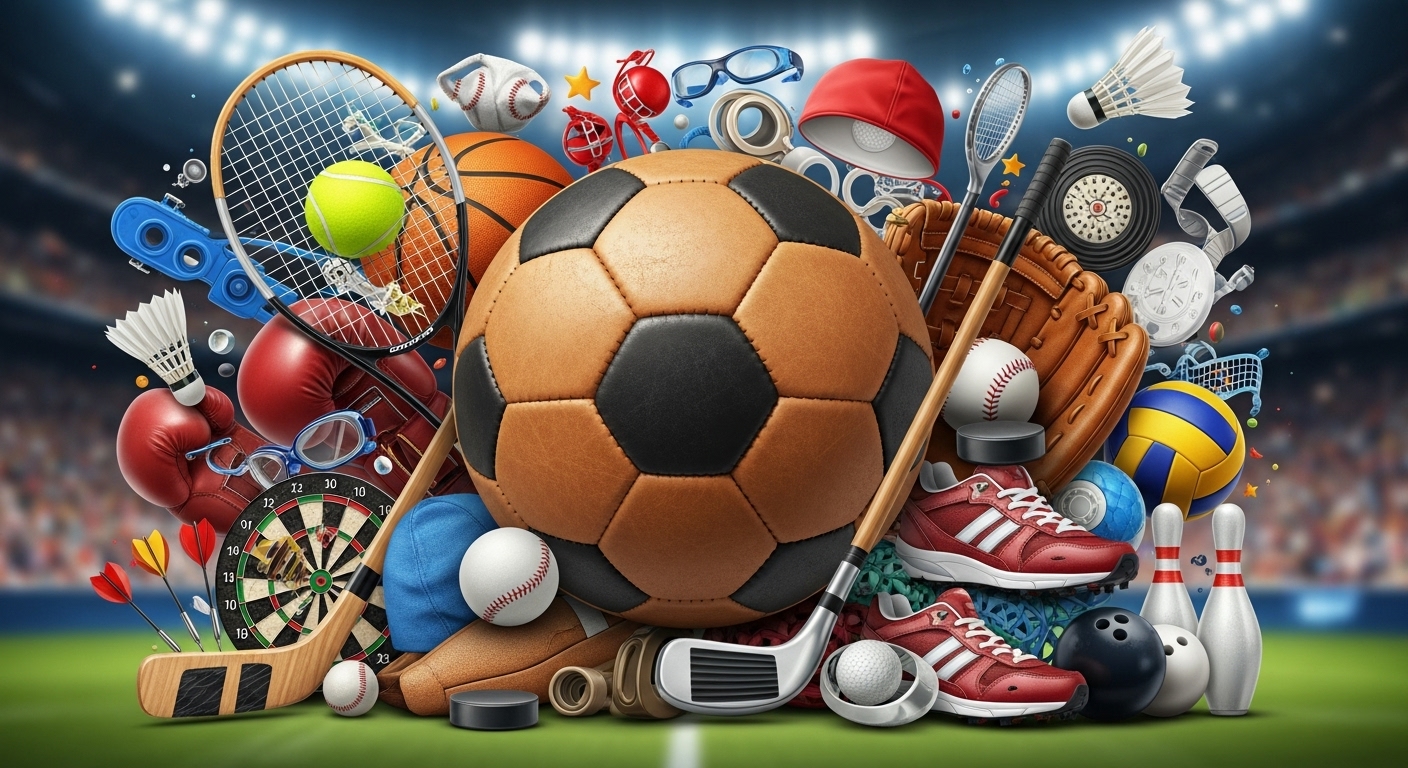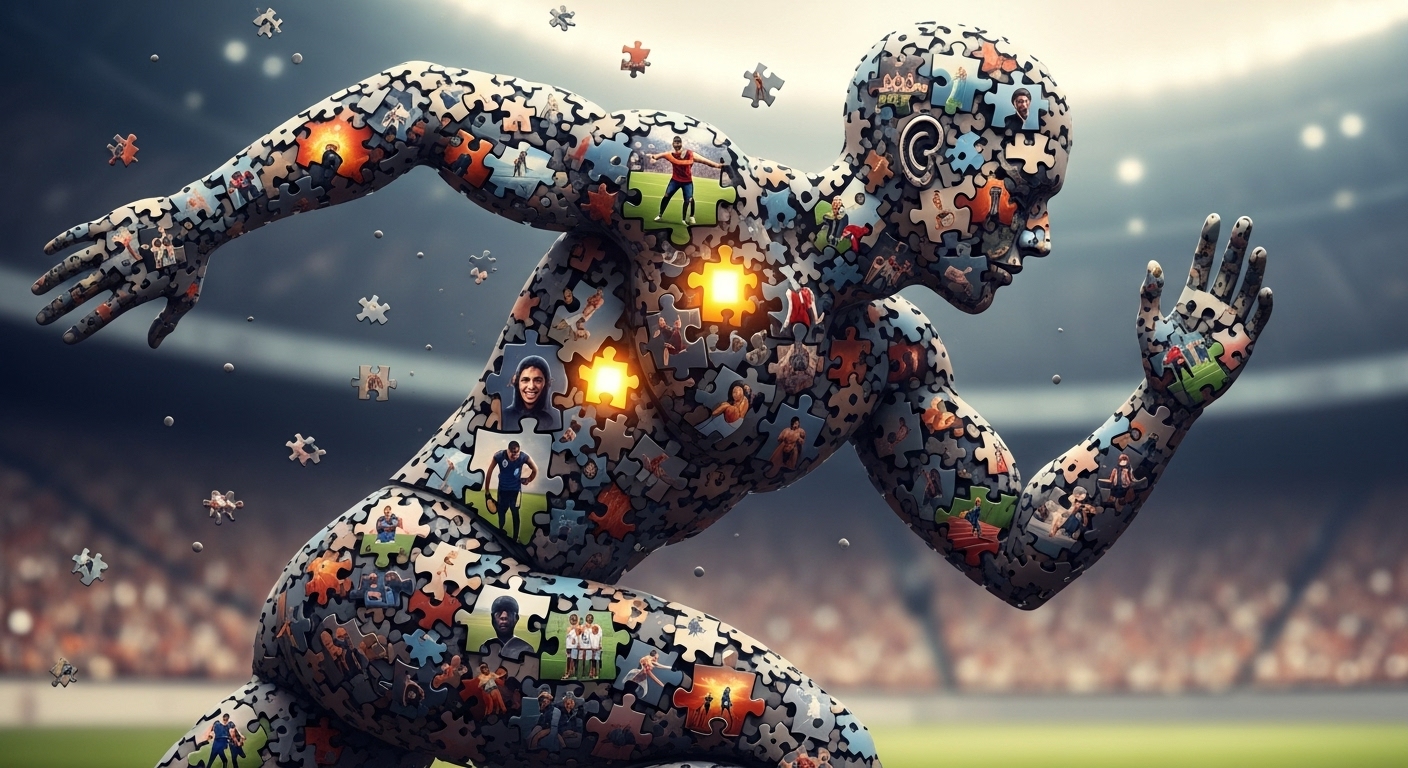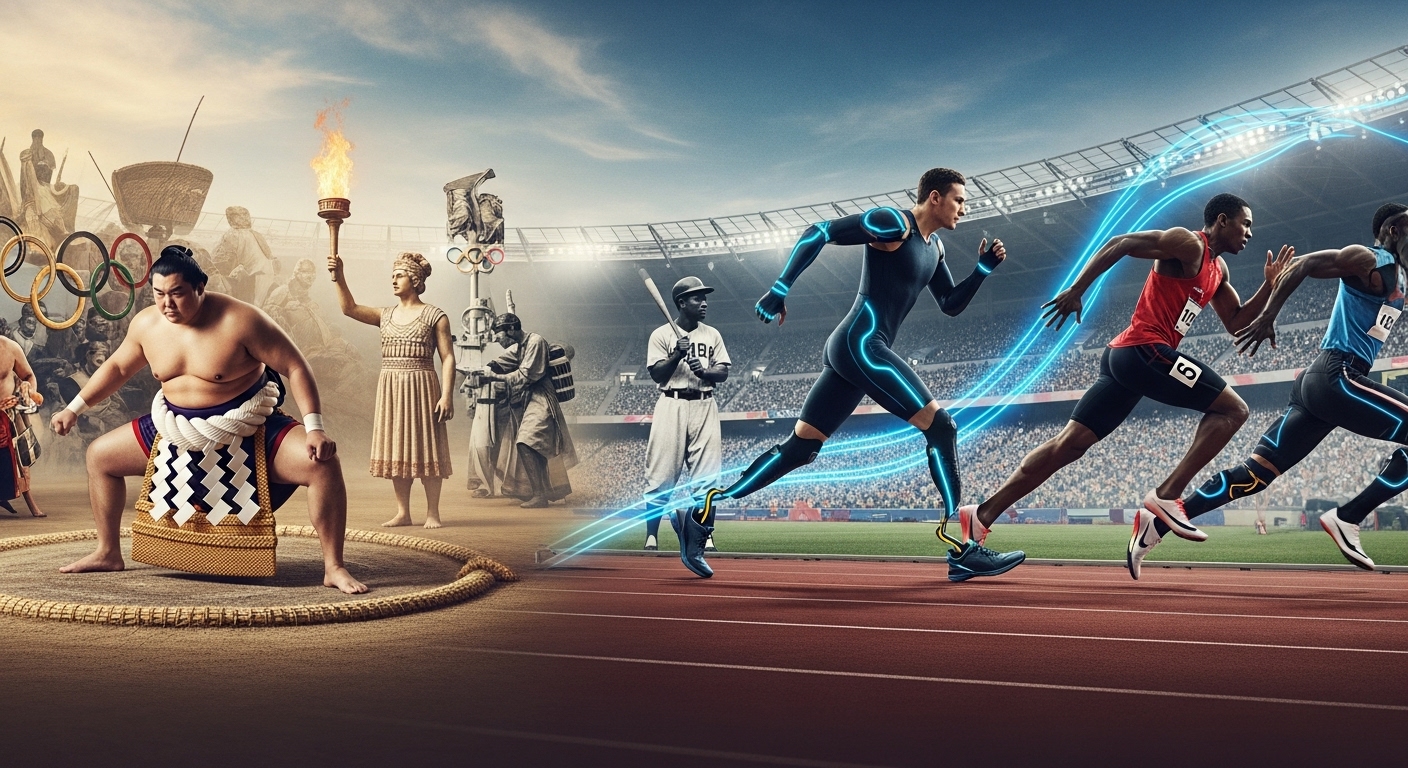Sports have been an integral part of human culture for centuries, influencing not only the lives of athletes but also shaping societies around the world. Whether it’s the Olympic Games that unite nations or the local community games that bring people together, sports have a unique way of influencing our physical health, mental well-being, and social structures. This post explores the many aspects of sports—its historical significance, its health benefits, the role it plays in social cohesion, and its potential for personal and societal growth.
The Role of Sports in Ancient and Modern Civilizations
The origins of sports can be traced back to ancient times, where physical activities were often tied to religious rituals, military training, and entertainment. The ancient Greeks, for example, introduced the concept of organized athletic competition through the Olympic Games, which began in 776 BC. These games were not only a display of athletic prowess but also a tribute to the gods. They brought together athletes from various city-states, showcasing the importance of both individual achievement and collective identity.
As civilizations evolved, so did sports. In ancient Rome, gladiatorial combat was a popular form of entertainment. Although the brutality of such contests might seem alien to us today, they were integral to the cultural fabric of the Roman Empire, symbolizing power, honor, and skill. Sports were used as tools for both public spectacle and the demonstration of physical superiority.
In medieval Europe, tournaments like jousting became widespread, serving as both entertainment and a demonstration of knightly valor. By the time of the Industrial Revolution, sports began to take a more formalized shape, with the development of standardized rules and the rise of professional leagues in sports like soccer, cricket, and baseball. Today, sports have become a multi-billion dollar industry, with professional leagues, international competitions, and an ever-growing fanbase that spans the globe.
Physical Health Benefits of Sports
One of the most obvious and widely recognized benefits of participating in sports is the positive impact on physical health. Regular engagement in physical activities like running, swimming, cycling, or team sports such as soccer or basketball helps keep the body fit and healthy. Sports are essential in preventing a wide array of chronic diseases, including heart disease, diabetes, and obesity. By engaging in physical activity, individuals improve their cardiovascular health, build muscle strength, and increase flexibility.
In addition to preventing chronic diseases, sports help in weight management. Many forms of exercise promote fat burning and increase metabolism, which aids in maintaining a healthy body weight. As people get older, bone density tends to decrease, making bones more brittle and prone to fractures. However, weight-bearing sports, such as running, tennis, and basketball, help to increase bone density and reduce the risk of osteoporosis.
Furthermore, physical activity through sports helps to enhance the body’s immune system. Regular exercise boosts the immune system’s ability to fight off infections and illnesses. In fact, moderate exercise has been linked to a stronger immune response, reducing the frequency of illnesses like colds and flu.
Mental Health Benefits of Sports
While the physical health benefits of sports are well-known, the mental health benefits are equally important. Engaging in physical activity through sports has been shown to reduce symptoms of anxiety, depression, and stress. Exercise stimulates the release of endorphins, the body’s natural mood-boosting chemicals, which help promote a feeling of happiness and well-being.
For many, sports provide an outlet for stress. The mental focus required during a game or athletic performance allows participants to escape from the pressures of daily life. Whether it’s a pick-up game of basketball or a long-distance run, sports offer a mental break from work, school, or personal issues. The focus on movement, technique, and competition demands full attention, which can be therapeutic for those who may struggle with mental fatigue or emotional stress.
Moreover, the sense of accomplishment gained from improving in a sport or reaching personal fitness goals can boost self-esteem and confidence. For individuals dealing with low self-worth or body image issues, sports can offer a way to gain self-assurance and a positive sense of identity. Achieving a new personal best, winning a game, or simply pushing through difficult workouts all contribute to a stronger sense of self and mental fortitude.
Sports and Social Unity
One of the most powerful aspects of sports is its ability to bring people together. Regardless of race, nationality, or background, sports unite individuals in ways that few other activities can. On a local level, sports foster a sense of community. Whether it’s a neighborhood soccer match or a local volleyball tournament, these activities create connections between individuals who might not otherwise interact.
At the professional level, sports create national pride and unity. International competitions like the Olympic Games or the FIFA World Cup bring together athletes from diverse nations to compete in a spirit of camaraderie and mutual respect. The global attention these events garner highlights how sports transcend geographical and cultural boundaries. They allow people from all walks of life to engage in a shared experience, whether as spectators or participants, creating a sense of belonging.
Sports also play a significant role in promoting social cohesion by bridging societal divisions. In the 20th century, for example, the integration of African-American athletes into major professional leagues like Major League Baseball and the National Basketball Association (NBA) was a critical moment in the Civil Rights Movement in the United States. Figures like Jackie Robinson and Muhammad Ali used their athletic platforms to challenge racial injustice and advocate for equality, further proving that sports can be a powerful tool for social change.
Moreover, sports provide a space for individuals to overcome differences and work toward common goals. Whether on a team or simply as fans of a particular sport, people from different backgrounds, cultures, and beliefs come together through their shared love of the game. Sports events become platforms for dialogue, understanding, and even diplomacy. This is exemplified in the “Ping Pong Diplomacy” during the 1970s, when a friendly table tennis match between the U.S. and China helped ease tensions and opened the door to normalized diplomatic relations between the two countries.
Developing Leadership and Teamwork Through Sports
Sports teach invaluable life skills, particularly leadership and teamwork. In team sports, athletes learn to cooperate with others to achieve a common goal. They understand the importance of communication, trust, and working together to execute strategies. These skills are not only applicable in sports but are highly transferable to professional and personal relationships.
In addition to teamwork, sports offer numerous opportunities to develop leadership skills. Athletes, especially those in leadership roles like team captains, learn how to inspire and motivate others, make decisions under pressure, and manage conflicts. Leadership in sports also involves leading by example—whether it’s maintaining discipline, encouraging teammates, or pushing through adversity.
The lessons learned from sports extend beyond the playing field. The process of setting goals, working hard to achieve them, and learning from setbacks is a critical part of personal development. Athletes often experience both triumphs and failures, and each outcome teaches them how to handle success with humility and failure with resilience.
The Role of Sports in Education
In schools and universities, sports are often an integral part of the educational experience. Physical education programs promote not only fitness but also teamwork, discipline, and time management. Sports provide an opportunity for students to balance their academic responsibilities with physical activity, offering a break from the pressures of classroom learning. This balance has been shown to improve cognitive function, help reduce stress, and increase focus in other areas of life.
Moreover, sports contribute to the development of character. Participating in sports encourages students to persevere through challenges, overcome obstacles, and understand the importance of hard work. These qualities are crucial for academic success and personal development. Many successful professionals credit sports for shaping their work ethic, leadership skills, and determination.
The Economic Impact of Sports
Sports have become a multi-billion-dollar industry that contributes significantly to the global economy. Professional sports leagues, such as the NFL, NBA, and Premier League, generate massive revenues through ticket sales, merchandise, broadcasting rights, and sponsorship deals. This economic impact extends beyond the athletes and teams, creating jobs in industries like media, hospitality, transportation, and marketing.
Major sporting events like the World Cup, the Olympics, and the Super Bowl generate enormous economic benefits for host cities and countries. These events attract millions of visitors, boosting tourism, creating infrastructure projects, and stimulating local economies. In addition, sports tourism—where fans travel to attend events or support their favorite teams—has become a major segment of the global tourism industry.
The sports industry also plays a key role in philanthropy. Many professional athletes and sports organizations contribute to charitable causes and community outreach programs, using their platform to raise awareness and funds for social issues. Sports, therefore, not only bring financial prosperity but also have the potential to make a positive impact on society through charitable efforts.
The Future of Sports
Looking toward the future, the world of sports continues to evolve. Technological advancements are revolutionizing how athletes train, how games are played, and how fans experience sports. Innovations like virtual reality (VR) and augmented reality (AR) are changing the way fans engage with their favorite sports, allowing them to experience live events from the comfort of their homes in more immersive ways.
In addition, advances in wearable technology are providing athletes with new ways to monitor and improve their performance. Devices that track heart rate, calories burned, and muscle activity are helping athletes maximize their training, avoid injuries, and recover faster. As technology continues to advance, it will likely open up new possibilities for both athletes and fans, transforming the sports landscape in exciting ways.
Moreover, the increasing emphasis on inclusivity and diversity will shape the future of sports. Women’s sports are receiving more attention, and there is growing support for athletes from underrepresented groups. LGBTQ+ athletes are finding more acceptance and visibility, and efforts to combat racism and discrimination in sports are gaining momentum. This shift toward greater inclusivity will ensure that sports remain a space for individuals of all backgrounds to thrive.
Conclusion
Sports have a profound impact on individuals and society as a whole. From promoting physical and mental health to fostering social unity and economic growth, the influence of sports is undeniable. Whether participating as an athlete or as a fan, sports have the ability to inspire, challenge, and connect us. As technology advances and societal norms evolve, the future of sports is bright, with even greater opportunities for personal growth, social change, and international unity.




